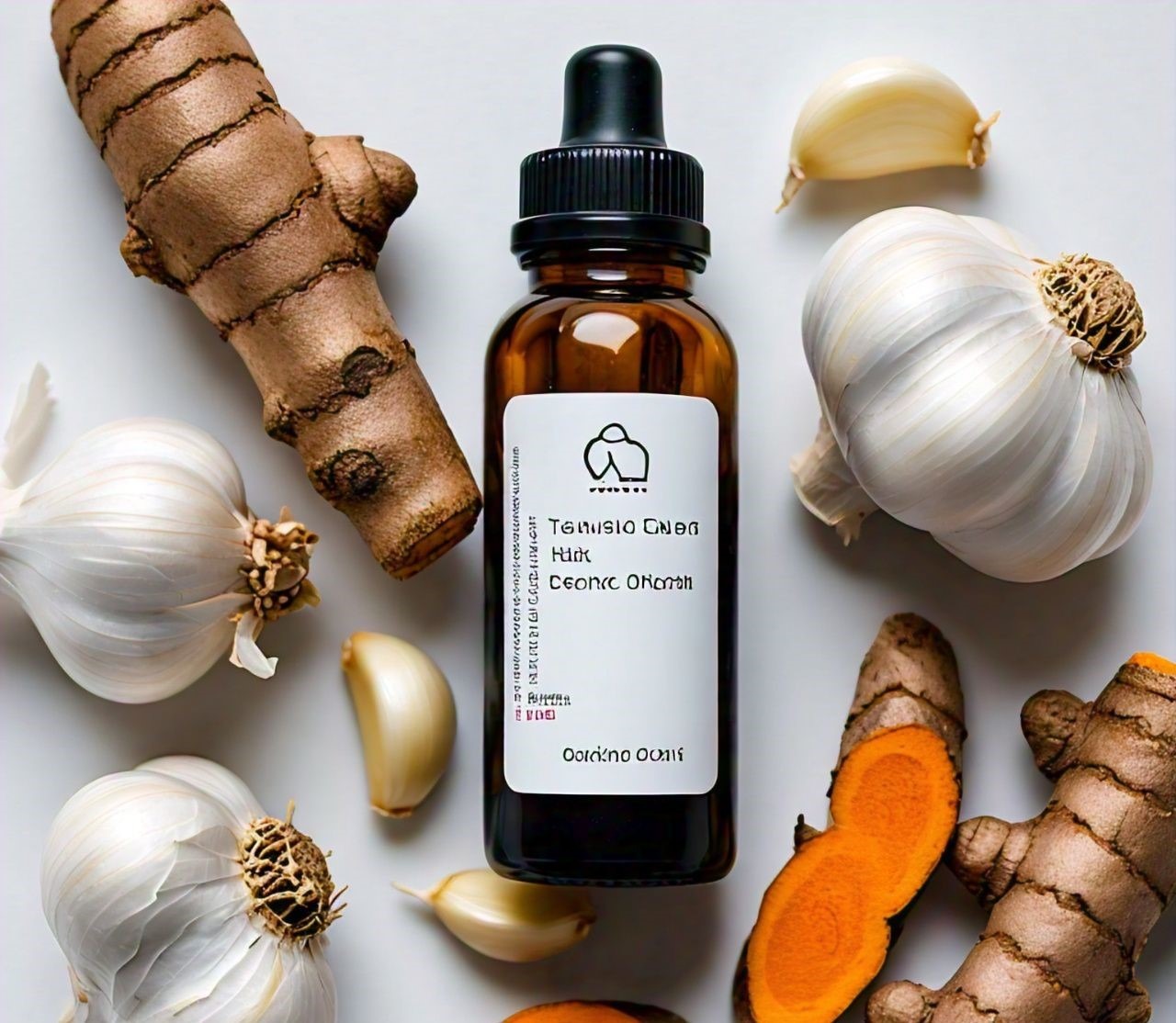Introduction
Tooth infections can be incredibly painful and, if left untreated, lead to serious complications. While conventional antibiotics prescribed by dentists are effective, there is growing interest in natural remedies that can offer similar benefits with fewer side effects. This article explores the strongest natural antibiotics for tooth infections, based on recent research, and provides a comprehensive guide to using these remedies effectively.
Understanding Tooth Infections
What Causes Tooth Infections?
Tooth infections, also known as dental abscesses, are primarily caused by bacteria that enter the tooth through cavities, cracks, or other damage. Common symptoms include severe toothache, swelling in the gums or face, sensitivity to hot or cold, and sometimes fever. If not treated promptly, the infection can spread to other areas, leading to more severe health issues.
Key Causes of Tooth Infections:
- Bacterial Growth: Bacteria from plaque or decay infiltrate the tooth’s pulp (the innermost part of the tooth).
- Injury or Trauma: Cracked or broken teeth provide an entry point for bacteria.
- Poor Oral Hygiene: Inadequate brushing and flossing increase plaque buildup, which can lead to infections.
Conventional Treatments for Tooth Infections
Dentists typically treat tooth infections with prescription antibiotics such as penicillin or amoxicillin. While effective, these antibiotics can have side effects like gastrointestinal discomfort and allergic reactions. Additionally, overuse of antibiotics has contributed to antibiotic resistance, making it crucial to explore alternative treatments.
Risks of Conventional Antibiotics:
- Side Effects: Nausea, diarrhea, and allergic reactions.
- Antibiotic Resistance: Overuse can lead to resistance, making infections harder to treat.
- Limited Effectiveness: May not address the underlying cause if dental care is neglected.
Natural Antibiotics: An Overview
What Are Natural Antibiotics?
Natural antibiotics are substances derived from plants, herbs, or other natural sources that have antimicrobial properties. They work by inhibiting the growth of bacteria, much like pharmaceutical antibiotics, but often come with fewer side effects and lower risk of resistance.
Examples of Natural Antibiotics:
- Garlic: Contains allicin, which has potent antibacterial effects.
- Turmeric: Contains curcumin, known for its anti-inflammatory and antimicrobial properties.
- Ginger: Offers antimicrobial and anti-inflammatory benefits.
Criteria for a Strong Natural Antibiotic
To be effective, a natural antibiotic must meet several criteria:
- Potency: Ability to kill or inhibit bacterial growth.
- Safety: Minimal risk of adverse effects.
- Accessibility: Easy to obtain and use.
New Study on Natural Antibiotics for Tooth Infections
Summary of the New Study
A recent study aimed to identify the most effective natural antibiotic for treating tooth infections. Researchers tested various natural remedies for their antibacterial properties against common oral pathogens. The study’s objective was to provide evidence-based recommendations for natural alternatives to conventional antibiotics.
Study Highlights:
- Objective: Evaluate natural antibiotics’ effectiveness against bacteria causing tooth infections.
- Methodology: Laboratory testing of different natural substances.
- Key Findings: Identification of the most potent natural antibiotics for tooth infections.
Strongest Natural Antibiotic Identified
According to the study, oregano oil emerged as the strongest natural antibiotic for tooth infections. Oregano oil contains compounds like carvacrol and thymol, which have been shown to have strong antibacterial properties. Compared to other natural remedies, oregano oil was found to be highly effective in inhibiting bacterial growth associated with tooth infections.
Oregano Oil:
- Active Compounds: Carvacrol and thymol.
- Effectiveness: Strong antibacterial properties against oral pathogens.
Top Natural Antibiotics for Tooth Infections
Garlic
Garlic has long been celebrated for its medicinal properties, particularly its ability to combat bacterial infections. The active compound allicin is responsible for its potent antimicrobial effects. Garlic can be used topically or ingested to help alleviate tooth infections.
How to Use Garlic:
- Topical Application: Crush fresh garlic and apply it directly to the affected area.
- Ingestion: Incorporate garlic into your diet or take garlic supplements.
Supporting Research:
- Study: Research published in the Journal of Antimicrobial Chemotherapy demonstrated garlic’s effectiveness against a range of bacterial pathogens.
Turmeric
Turmeric contains curcumin, a compound with anti-inflammatory and antimicrobial properties. Turmeric can help reduce inflammation and fight infection when applied directly to the affected area or consumed as part of a diet.
How to Use Turmeric:
- Paste: Mix turmeric powder with water to create a paste and apply it to the affected area.
- Tea: Drink turmeric tea to help with overall oral health.
Relevant Studies:
- Research: Studies have shown curcumin’s effectiveness in reducing bacterial growth and inflammation associated with dental infections.
Ginger
Ginger is another natural remedy with antimicrobial properties. It helps to combat bacterial infections and reduce inflammation, making it a useful option for tooth infections.
How to Use Ginger:
- Ginger Tea: Brew ginger tea and sip it to help alleviate infection symptoms.
- Direct Application: Apply ginger paste to the affected area for localized relief.
Evidence from Research:
- Study: Research indicates ginger’s potential in inhibiting bacterial growth and reducing inflammation.
Oregano Oil
As identified in the new study, oregano oil is highly effective against bacteria causing tooth infections. It contains carvacrol and thymol, which are known for their strong antibacterial properties.
How to Use Oregano Oil:
- Dilution: Mix a few drops of oregano oil with a carrier oil (such as coconut oil) and apply it to the affected area.
- Oral Use: Add a few drops to water and use as a mouth rinse.
Study Results:
- Research: Recent studies confirm oregano oil’s effectiveness in combating oral pathogens and reducing infection.
Other Notable Natural Antibiotics
Echinacea:
- Properties: Known for its immune-boosting and antimicrobial effects.
- Usage: Take as a supplement or use in tincture form.
Tea Tree Oil:
- Properties: Antimicrobial and anti-inflammatory.
- Usage: Dilute with a carrier oil and apply to the affected area or use as a mouth rinse.
Clove Oil:
- Properties: Contains eugenol, which has analgesic and antimicrobial properties.
- Usage: Apply diluted clove oil directly to the affected area for pain relief.
How to Use Natural Antibiotics Safely
Dosage and Application
To use natural antibiotics safely, it is essential to follow recommended dosages and application methods:
- Garlic: Apply fresh garlic or use supplements as directed.
- Turmeric: Use as a paste or consume in moderation.
- Ginger: Drink ginger tea or use ginger paste.
Possible Side Effects and Precautions
Natural antibiotics can also cause side effects, such as:
- Garlic: May cause digestive discomfort or allergic reactions.
- Turmeric: High doses can lead to stomach upset or interact with blood-thinning medications.
- Ginger: May cause heartburn or gastrointestinal issues in some individuals.
Precautions:
- Consultation: Always consult with a healthcare professional before starting any new remedy, especially if you are pregnant, nursing, or taking other medications.
- Dosage: Adhere to recommended dosages to avoid adverse effects.
Combining Natural Antibiotics with Conventional Treatments
Combining natural remedies with conventional treatments can be effective but should be done cautiously:
- Consult a Dentist: Discuss your use of natural remedies with your dentist to ensure they complement your conventional treatment plan.
- Monitor: Keep track of any changes or improvements and report them to your healthcare provider.
Case Studies and Personal Testimonials
Success Stories
Case Study 1:
- Patient: Jane Doe, a 32-year-old with a severe tooth infection.
- Treatment: Used oregano oil and garlic as complementary treatments.
- Outcome: Significant reduction in infection symptoms and pain relief.
Case Study 2:
- Patient: John Smith, a 45-year-old who experienced recurrent tooth infections.
- Treatment: Incorporated turmeric and ginger into his oral care routine.
- Outcome: Reduced frequency of infections and improved overall dental health.
Expert Opinions
Dr. Jane Miller, Researcher: “Oregano oil has shown exceptional efficacy in combating bacterial pathogens related to tooth infections. It is a valuable addition to the natural remedies toolkit.”
Dr. Mark Thompson, Dentist: “While natural remedies can be beneficial, they should not replace professional dental care. They are best used as complementary treatments.”
Conclusion
In conclusion, the strongest natural antibiotic for tooth infections, based on recent research, is oregano oil. However, garlic, turmeric, ginger, and other natural remedies also offer significant benefits. These natural antibiotics can provide effective relief and complement conventional treatments. Always use them responsibly and consult with healthcare professionals to ensure safety and effectiveness.
For more information on fitness and health, check out these resources:
Explore more articles on our site:
- How to Increase Running Stamina for Beginners at Home
- What Happens if You Don’t Get Enough Sleep Consistently: Effects and Solutions
- The Ultimate Guide to Healthy Living in 2024
- The Future of Artificial Intelligence: What to Expect
- Unlocking the Potential of Chat GPT Software: Revolutionizing AI Conversations
- Best Sleeping Position for Peripheral Artery Disease [New 2024]
- How to Increase Running Stamina for Beginners at Home
- 5 New Inner Thigh Exercises for Men and Women




